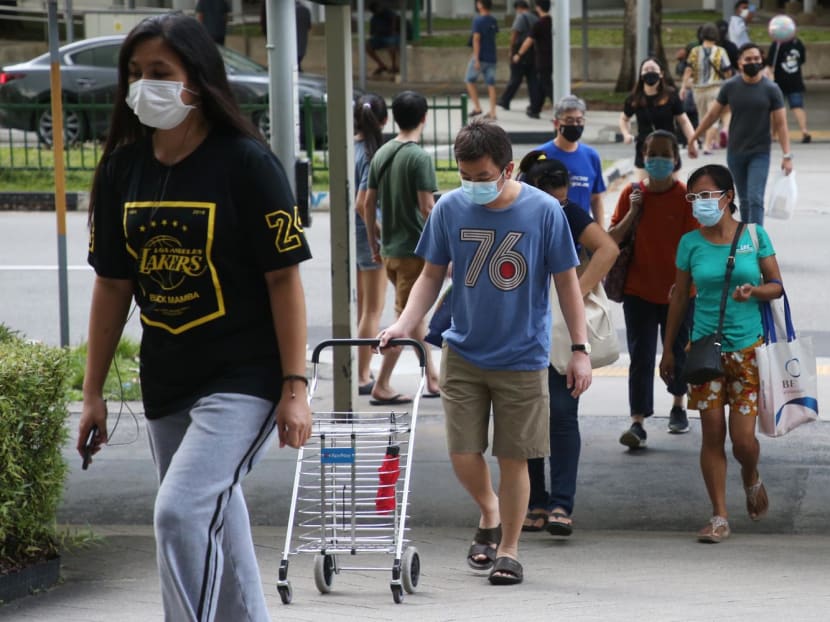Govt support measures to 'fully shield' bottom 40% of households from expected inflation in 2022: MOF report
SINGAPORE — Support measures by the Government this year, including public transport vouchers and support packages from the Budget, is expected to "fully cover" the increase in expenses for 2022 due to inflation for the bottom two-fifths of income earners.

- Government support measures this year are expected to "fully cover" the increase in expenses for 2022 due to inflation for the bottom two-fifths of income earners
- These measures are also expected to cover more than half of the average projected increase in expenditure this year for households in the 40th to 60th percentile of earners
- The report studied the effects of various cost-of-living support measures disbursed by the Government this year to defray the rise in living expenses
- The report also considered how government support measures are reflected in the Consumer Price Index, which tracks inflation
SINGAPORE — Support measures by the Government this year, including public transport vouchers and support packages from the Budget, are expected to "fully cover" the increase in expenses for 2022 due to inflation for the bottom two-fifths of income earners.
"In other words, the bottom 40 per cent of households are fully shielded from expected inflation this year," said the Ministry of Finance (MOF) in a technical report on Friday (Oct 14).
These measures are also expected to cover more than half of the average projected increase in expenditure this year for households in the middle quintile, said the ministry, referring to those in the 40th to 60th percentile.
Released as part of the Government's announcement for a S$1.5 billion support package to help Singapore households fend against inflation, the MOF report studied the effects of various cost-of-living support measures disbursed by the Government this year to defray the rise in living expenses.
One part of the report looked at how the benefits received by households this year mitigated the impact of rising expenses due to inflation.
These benefits include the financial support disbursed through the Household Support Package announced during Budget this year and the public transport vouchers announced in April.
It also considered two other financial support packages meant to tackle high cost of living, including the latest measures announced on Friday and another package announced in June.
For the whole of 2022, headline inflation is expected to be 6 per cent, which far exceeds the average of 1.5 per cent experienced over the past two decades, the report noted.
The ministry then used data to project how the expenditures for the different household income groups and key household archetypes will increase this year, based on the inflation forecast for different household income groups.
Support measures this year are also expected to entirely offset the expenditure increases of the average retiree household, it added.
For households in the middle quintile, more than half of their average expenditure increase is covered. This translates to more than halving the effect of around 6 per cent inflation.
IMPACT OF MEASURES ON INFLATION
Another part of the report considered how government support measures are reflected in the Consumer Price Index, which tracks inflation.
Using an "experimental" index that includes the effect of utilities rebates and vouchers, public transport vouchers and Medisave top-ups, MOF found that the effective inflation faced by households would have been lower than the actual inflation rate.
The MOF report concluded that these measures will have registered an average inflation of 5.4 per cent from January to August this year, 0.3 percentage points lower than actual inflation in the same time period.
The report said its findings show that many of its schemes are designed to supplement the income of Singaporean households and offset part of their expenditure.
"Cash or near-cash transfers are intended to improve affordability and give households the choice as to how to use the additional resources, rather than lower prices generally for all. This targeted approach more effectively buffers cost-of-living pressures for lower- and middle-income households," the report concluded.











